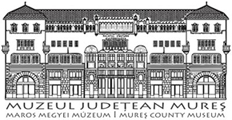Marisia - Maros Megyei Múzeum Évkönyve 36/2. (2016)
Ciprian Rigman: Conduita socială a învăţă torilor greco-catolici din Dieceza Gheria între normă şi realitate (1856-1868)
Marisia XXXVI Conduita socialä a invätätorilor greco-catolici din Dieceza Gherla Tntre normä §i realitate (1856-1868) Ciprian RIGMAN The Social Behavior of the Greek-Catholic Teachers from the Gherla Dioceses between Norm and Reality (1856-1868) Abstract The current study analyses the social behavior of the Greek-Catholic teachers from the Gherla Dioceses as a fundamental element for understanding the social status of this category of the Romanian elite, alongside their education and material situation. The research dwells on the professional statute of the Greek-Catholic teachers in the middle of the 19th century and their moral behavior, as reflected in the official documents of the education system and the local press of the time, comparing the prescribe norm with the actual reality as reflected in the archive documents. In the past, just like nowadays, the teacher occupation was deemed a noble one and its social status was linked to an ideal social and moral behavior that teachers are expected to meet. The study clearly shows that some competences and qualities of the teacher are similar across history and travel through time to be included in the portrait of the ideal teacher, among them being the dedication to the profession, love for the children, respect for the rules, procedures and hierarchy, high moral behavior, correct and balanced actions, active community presence and improvement of mind by permanent study and continued education. Cuvinte cheie: invätätori, Episcopia Greco-Catolicä de Gherla, conduitä socialä, normä prescrisä, realitate träitä Key words: teachers, Greek-Catholic Dioceses of Gherla, social behavior, prescribed norm, actual reality Conturarea statutului social al invätätorilor greco-catolici din Episcopia Unité de Gherla, la mijlocul secolului al XlX-lea, ar fi incompletä färä analiza conduitei lor profesionale §i morale. Competenda lor profesionalä §i prezenfa lor morálé reprezintá elemente definitorii Tn privin^a modului de receptare a invätätorilor Tn cadrul societäfii románesti ardelene. Vom purcede, prin urmare, Tn analiza statutului profesional §i moral al dascälului greco-catolic, de la mijlocul secolului al XlX-lea, cuidentificarea profilului säu ideatic, a§a cum apare el ilustrat Tn documented oficiale §i Tn presa vremii, pentru a compara apói norma cu ceea ce regäsim Tn reálul träit. ín sensui celor afirmate, vom Tncerca sä surprindem, la nivelul imediat perceptibil, prototipul profesional al dascälului §i relatia pe care acesta о avea cu Biserica §i slujitorul ei, preotul. ín ceea ce prive§te profilul profesional al dascälului, el poate fi identificat pe baza a trei dimensiuni: grija manifestatä fafä de §coalä, atenfia acordatä metodelor moderne de predare §i §lefuirii caracterelor elevilor §i relafia inter-umanä pe care о avea cu pruncii §colari. Parte a atribufiilor sale, buna administrare a clädirii §colare, a inventarului §i anexelor ei, precum §i a grädinii §colii, trebuiau sä-l preocupe Tn mare mäsurä pe dascäl. Cu privire la aceastä problemä, iatä ce ne e dat sä lecturäm Tntr-unul dintre numerele periodicului didactic „Amicui $coalei” din anui 1862: „[...] sa-§i 33
